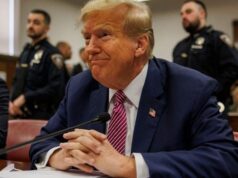
Dyson has been one of many manufacturers that have tried to help address the ventilator shortage in the UK during the covid-19 pandemic. The company, better known for its vacuums and hair dryers, created a prototype ventilator from scratch in under two weeks. Nonetheless, for now, the ventilator will not be used on patients in the UK.
On Friday, Dyson said that the UK government had told the company that it no longer needed its ventilator, called the CoVent, according to Reuters. The CoVent is a bed-mounted portable ventilator that can also be run on battery power, which is ideal if used in field hospitals. The government had originally placed a provisional order for 10,000 CoVent ventilators with Dyson on the condition that the device received regulatory approval.
The UK government has said it needs 18,000 ventilators to deal with the crisis. It currently has 10,800. Ventilators are used in severe cases of covid-19, the disease caused by the novel coronavirus, when patients have trouble breathing on their own. The devices provide oxygen to lungs damaged by covid-19 and give them time to recover.
Per the Financial Times, Dyson had hoped to receive regulatory approval for the CoVent quickly but had to redesign the device after officials changed the specifications. The Guardian reported that approval was expected to take some time and that the need for ventilators had so far proved lower than expected.
According to the Johns Hopkins Coronavirus Resource Center, as of Saturday the UK had 149,559 cases of covid-19 and 20,381 deaths.
In a statement, James Dyson, the company’s billionaire founder, said that the ventilators were “mercifully” not required. Dyson said the company had spent roughly $25 million on the CoVent project, but would not ask for public money to cover its costs.
“We don’t regret our contribution to the national effort for one moment,” James Dyson said. “I have some hope that our ventilator may yet help the response in other countries, but that requires further time and investigation.”
In addition to the 10,000 produced for the UK government, Dyson had also planned to produce 5,000 for donation in the UK and internationally.
The Dyson ventilator is the second project abandoned by the UK government, according to the Guardian. In recent weeks, a ventilator developed by the Red Bull and Renault Formula One teams was rejected by the government because medical officials determined it was not suited to treat covid-19 patients.
Not all companies have seen their efforts flop. Ventilator Challenge UK, a consortium of companies including Rolls-Royce, Siemens and Airbus, among many others, has obtained regulatory approval and already delivered 250 ventilators to the National Health Service, the UK’s public health system. In contrast to other initiatives, the consortium focuses on scaling up production of existing models of ventilators instead of creating a new one.
In the U.S., meanwhile, there are also various companies trying to tackle the ventilator shortage in the country by producing existing models or creating new ones. General Motors’ initiative to produce an existing Ventec model is probably the most well-known because of president Donald Trump’s Twitter rants and threats. (In the end, he used the powers under the Defense Production Act to force GM to make ventilators.)
Ford and GE Healthcare are working on producing an existing model from Airon. Tesla is in talks to produce one of Medtronic’s ventilators, as well as building its own.
Source: gizmodo.com








